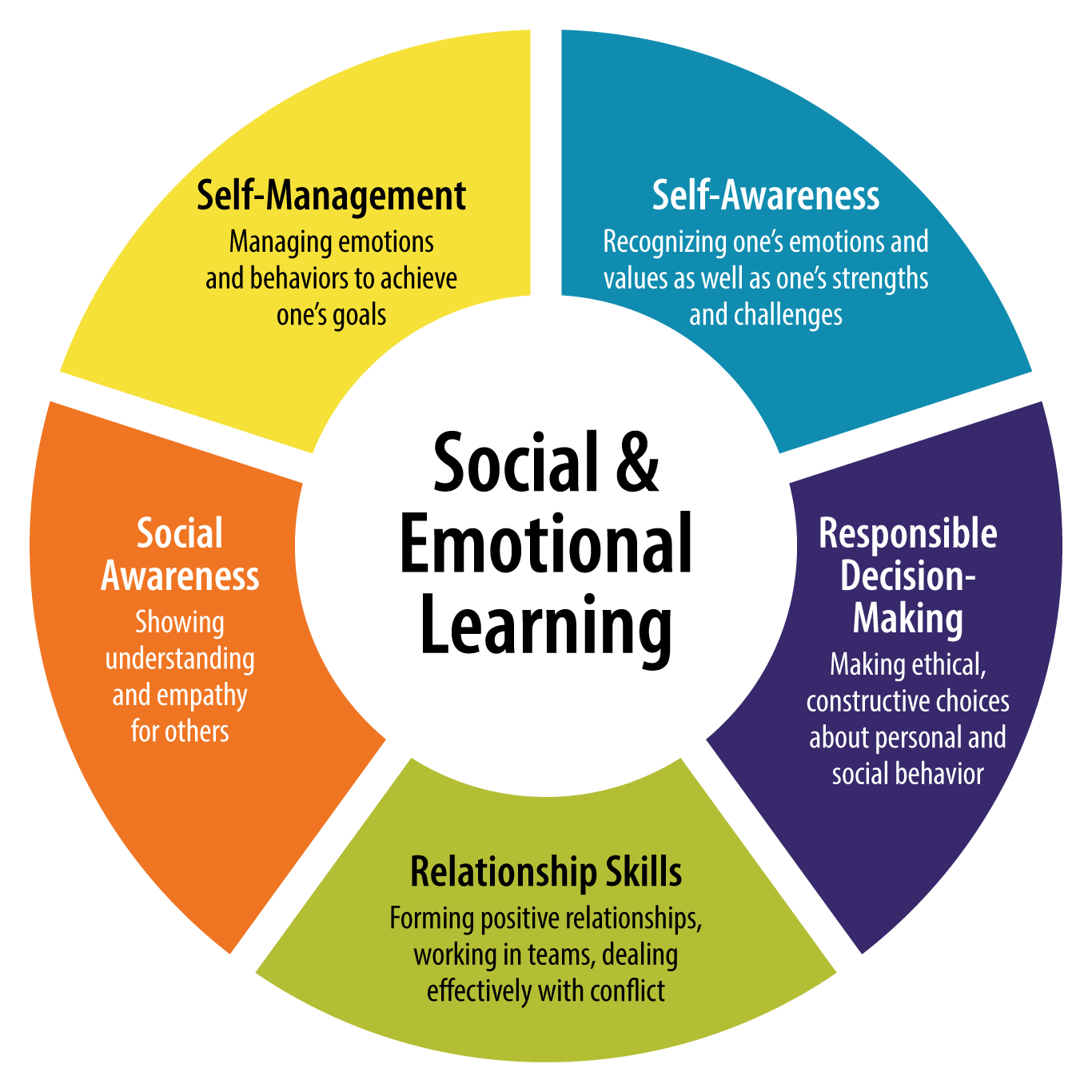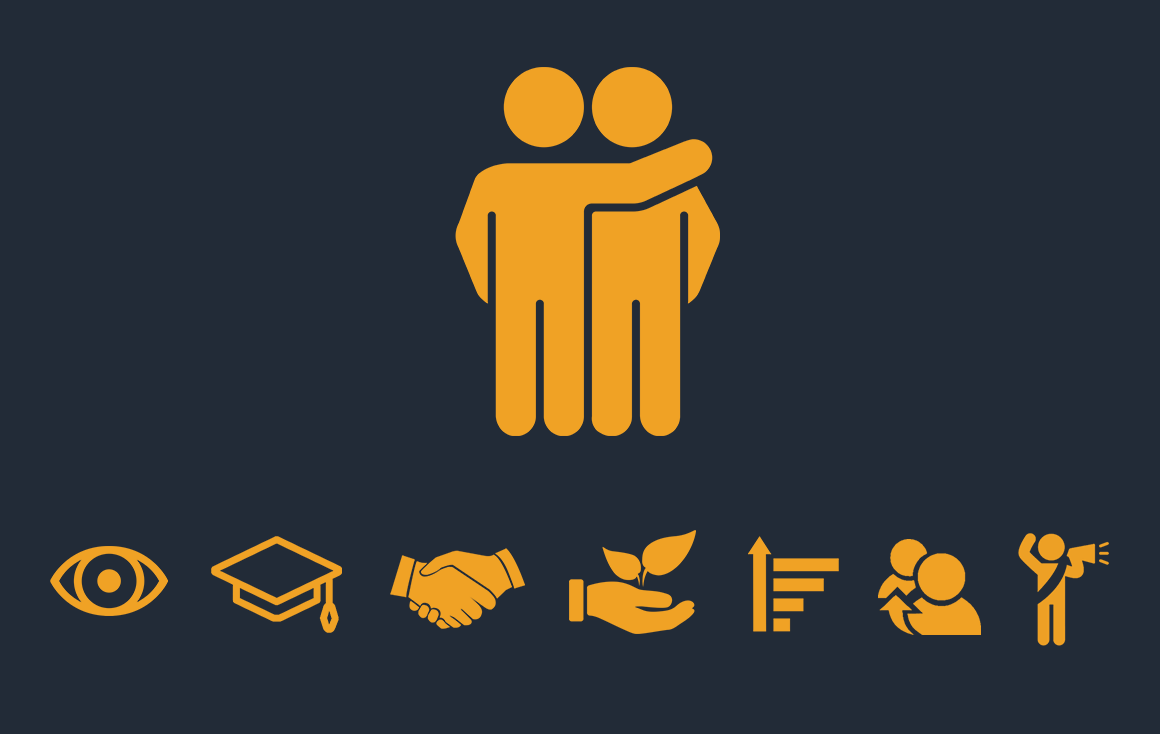Table of Contents
Our lives are marked heavily by stress nowadays and it is not just the adults that are prone to stress. Our children and young adults are subjected to a considerable number of stressors on a daily basis. These also impact children and young adults at an emotional level, and they need to be able to identify, understand, and handle this emotional stress efficiently to ensure their overall well-being and holistic development. This is where social emotional learning comes into the picture.
Social emotional learning helps students develop crucial life skills. These go beyond academics and impact the overall life of students both in the short term and long term as students develop their emotional intelligence through social emotional learning.
Upcoming Batches of TEFL Course :-
| Batch | Mode | Price | To Enrol |
|---|---|---|---|
| Starts Every Week | Live Virtual Classroom | 26500 | ENROLL NOW |
What Is Social Emotional Learning?
The Collaborative for Academic, Social, and Emotional Learning (CASEL) is an organization that works in this field. Its aim is integrated social emotional learning from preschool through high school. CASEL defines social emotional learning as, “social and emotional learning (SEL) is the process through which children and adults acquire and effectively apply the knowledge, attitudes, and skills necessary to understand and manage emotions, set and achieve positive goals, feel and show empathy for others, establish and maintain positive relationships, and make responsible decisions.”
A point to note here is that social emotional learning can be either taught at school or outside, though school is one of the main places for learning it as children spend a considerable part of their day at school. Moreover, social emotional learning can be seamlessly integrated into various activities and ways of imparting the curriculum. It comprises of the following key aspects/categories:
- Self-Awareness
- Self-Management
- Social Awareness
- Relationship Skills
- Responsible Decision Making
Categories of Social Emotional Learning:

- Self-Awareness: This involves recognizing and understanding one’s own feelings, emotions, and the resultant behaviour. Recognizing one’s personal goals, values, strengths, weaknesses, attitude, and having a sense of self-efficacy and sanguinity are aspects related to self-awareness.
- Self-Management: This is the next step to self-awareness. Once one is aware of one’s feelings, emotions and the resultant behaviour, the challenge then is to control or manage that behaviour for a desired positive outcome like self-motivation, anger management, stress handling, control of impulses, perseverance through challenges and setbacks, etc.
- Social Awareness: This is related to being aware of the outside world like the social behaviour norms, empathizing with others and feeling compassion for people coming from different backgrounds and cultures. It also involves identifying resources and support structures at home, school and in the community.
- Relationship Skills: This pertains to the interpersonal skills by way of creation and maintenance of healthy relationships according to social norms. Aspects like communication, conflict resolution, active listening, co-operation, managing social pressure and seeking help and support are included in it.
- Responsible Decision Making: This involves making safe and healthy decisions regarding oneself and others across diverse situations by adhering to a moral code so that it’s beneficial for both self and others.Aspects like consideration of ethical standards and safety concerns, norms for risky behaviour, evaluation of consequences of actions, and well-being of self and others is included in it.
Now that we understand what social emotional learning is, let us look at the need or importance of imparting it.
Also Read: 20 Innovative Teaching Strategies to Kick-start Your Teacher Brain
Need for Social Emotional Learning:
Research suggests that there is an interconnection between the cognitive processes controlling the social emotional development as well as intellectual development. Thus, both need to be developed for the holistic development of children. Students who are taught social emotional learning are more likely to have:
- better academic success both in the short term and long term,
- improved health and well-being,
- better self-esteem,
- improved communication and teamwork,
- positive coping mechanism,
- better view of self and others,
- enhanced confidence and empathy,
- reduced emotional distress,
- decreased risk taking behaviour and conduct problems
There is no doubt that the advantages of social emotional learning are manifold and long lasting and ample research has proven so. Thus, it will be safe to say that there is a pressing need for teaching social emotional learning and schools are a hub for it as children spend a considerable amount of time out of their entire day at school.
So, let us now look at some strategies to incorporate social emotional learning in classrooms. Some of these strategies may seem a trifle, however, they go a long way in creating a lasting positive impact on the individual’s behaviour.
Also Read About: Project Based Learning
15 Strategies to Incorporate Social Emotional Learning in Classrooms
The strategies to incorporate social emotional learning in classrooms revolve around teaching these skills, practicing them and then applying them. There are various ways of doing so as follows:
1. Promote Journal Writing:

Reflective journal writing is a great way to promote social emotional learning. It suits kids of different temperaments and abilities and provides a common development ground for all be it the quiet ones, the chatty ones, ones with special needs, etc. Students can either be given a prompt or asked to write freely. Writing a reflective journal helps them become more aware of their thoughts, feelings, emotions and the resulting behaviour.
It, thus, also helps them become more empathetic and compassionate. Creating a soothing and comfortable environment during the writing exercise promotes the feeling of relaxation and aids with the writing. Sharing of responses with a partner or the entire class is another useful way of promoting social emotional learning through reflective journal writing.
2. Encourage Read-Alouds for Perspective Taking:
Read-alouds can be a great way to encourage social emotional learning. They allow the opportunity for perspective taking through a discussion on whatever is being read.
This helps the kids become more aware, empathetic and compassionate towards others’ thoughts, feelings and emotions while being able to better manage their own thoughts, feelings, emotions and behaviour around others. This also helps develop their conflict resolution and management abilities.
3. Use Art to Encourage Expression:

Art is a great medium of expression and social emotional learning can also be practiced through it. Art is a great coping strategy for managing stress. Moreover, working with partners helps promote teamwork, collaboration, co-operation, sharing and relationship skills. This again is a great way to practice both self-awareness and social awareness.
4. Hold Class Meetings:
Daily or weekly class meetings help encourage social emotional learning. This provides the kids with a positive community space where they can discuss problems, plan class events, boost each other up, etc. It’s a forum where kids can speak freely about any topic or matter and helps them practice self-expression, being diplomatic, problem-solving, leadership and taking responsibility.
5. Discuss About Managing Emotions:
This is an important strategy to practice social emotional learning. Kids of all ages need guidance and practice for managing their emotions. This can be practiced partially during read-aloud by discussing about the characters’ feelings and emotional needs.
Additionally, there could be discussions held about managing the kids’ own emotions in various situations. These discussions not only help the kids understand and become more aware about their feelings and emotional needs, but also help them with suggestive strategies for managing their emotions and the resulting behaviour.
6. Practice Active Listening:

Another very important aspect of social emotional learning is practicing active listening. It’s a crucial skill that comes handy in all walks and phases of life. It helps not only in the classroom but also outside it and also later in life. Active listening helps in gaining better clarity about situations, emotions, feelings and behaviour.
7. Practice to Disagree Respectfully:
People are bound to disagree on something or another. However, it is important to disagree respectfully. Often emotions run high in case people happen to disagree and it quickly escalates into an altercation or even worse, a scuffle.
Therefore, it is important to make students practice disagreeing in an amicable manner i.e. to agree to disagree. This can be done by making them participate in debates and group discussions.
8. Teamwork & Group Activities:
Teamwork and group activities are a great medium for social emotional learning. Kids end up learning a lot be it small groups or large ones. Not only do they learn teamwork, co-operation, collaboration, empathy, compassion, but they also learn about roles and responsibilities.
These groups can sometimes be self-determined and sometimes be pre-arranged to ensure a healthy mix of group members. This ensures that they are able to get the maximum learning out of it. This is also a great community building exercise.
9. Buddy System:

This is one great strategy to develop one’s social emotional skills. Older and younger students from different classes are buddied together for games, reading or an art project. This is a crucial way to develop the students’ social interaction, communication, empathy, teamwork, collaboration, co-operation and compassion.
The younger students feel special at being guided by the older ones and learn to be around people older than them. The older ones learn about being responsible and taking care of the ones younger than them.
10. Role Plays:
Role plays are a great practical tool for learning social skills. Social emotional learning is not just about teaching concepts theoretically; it is also about practicing them and that’s the opportunity role-plays offer. Structured scenarios can be used for role playing and once done immediate feedback by the teacher can help students understand various nuances of social interactions.
This is an effective way of trying to understand the situation from the other person’s perspective in addition to one’s own, and in the process develop a better understanding of the situation and be more empathetic.
11. Play Games:

Co-operative learning games work great to promote social emotional learning. Communication, empathy, relationship skills, problem-solving, critical thinking, co-operation, handling failures, and managing success are just some of the skills that kids can develop through playing games. The learning transfer is also really high due to the fun and learn element.
12. Set SMART Goals:
This is a wonderful technique to promote self-motivation amongst students as a part of social emotional learning. SMART goals are Specific, Measurable, Agreed-Upon, Relevant and Time-Bound. They help students reach their potential by posing a challenge to them to achieve a set target within a given time frame.
Achievement of the SMART goal should gain rewards and in case of non-achievement further guidance, support and encouragement should be provided for the ultimate achievement of the goal.
13. Practicing Mindfulness:

Mindfulness is a crucial social emotional learning strategy which helps in effectively managing stress and anxiety. It is a self-awareness skill that aims to focus on the present to accept one’s circumstances.
Apart from helping kids calm down and manage their emotions when upset, mindfulness helps the kids to relax and be happy in the moment, thus enhancing their overall well-being. There are various ways to teach mindfulness to kids like breathing exercises, guided meditation, focusing on just one thing, etc.
14. Promoting A Growth Mindset:
Another crucial social emotional learning strategy for the better development of students is promoting a growth mindset. Often kids restrict their development by assuming their limited ability at a task.
Growth mindset comes into play in such situations. They need to understand that hardwork, persistence and a well laid out strategy can help them achieve success at anything.
15. Discussing Empathy:
This is a critical social emotional learning skill as it makes one more socially aware and receptive to others. It is the foundation based on which one is able to understand others better by considering their feelings, points of view and the resultant behaviour. Thus, one is better able to manage self and others in social situations.
Conclusion:
The above is an indicative list of some of the social emotional learning strategies and indicate the various ways in which the social and emotional skills of children and young adults can be developed effectively. Social emotional learning is no doubt the need of the hour and all kids and young adults need to be taken through it for their holistic development.
It is not just a means to help children and young adults fight stress, anxiety, and negative emotions, but also a source of development of positive emotions. Their becoming aware of their own thoughts, feelings, emotions and resultant behaviour is the stepping-stone for them to develop into better individuals. Their social awareness development would lead to the shaping of a better, more tolerant and inclusive society eventually.
Also Check this Video
Recommended Read:
– What is TEFL Certification
– Top 10 TEFL Certification Program in 2021
– Top 15 Free TEFL Certification Courses in 2021
– Top 50 Best TEFL Certification Courses
– TEFL Vs. TESOL
Recommended Programs
120-hours TEFL / TESOL
Online Certification Course
Ranked No. 1 Course | 100% interview guaranteed | Live Online Instructor-led TEFL Training & Certification | AAEFL Certified TEFL Course | Qualify for 12,000+ jobs from 6+ countries | With over 100,000 English teaching positions opening every year, immerse into the market of 2 Billion English learners today.
TEFL Certification Online
Course in USA
Ranked No. 1 TEFL Certification Course in USA | 100% Interview Guaranteed | Online Certification course in USA | instructor-led training and certification program of TEFL | Qualify for 12000+ jobs from 6+ countries.
Post Graduate Program
in TEFL
Ranked No. 1 Course | 100% interview guaranteed | Live Online Instructor-led Post Graduate TEFL Training & Certification | AAEFL Certified Post Graduate Program in TEFL | Qualify for 12,000+ jobs from 6+ countries | With over 100,000 English teaching positions opening every year, immerse into the market of 2 Billion English learners today.
Explore Popular Category

